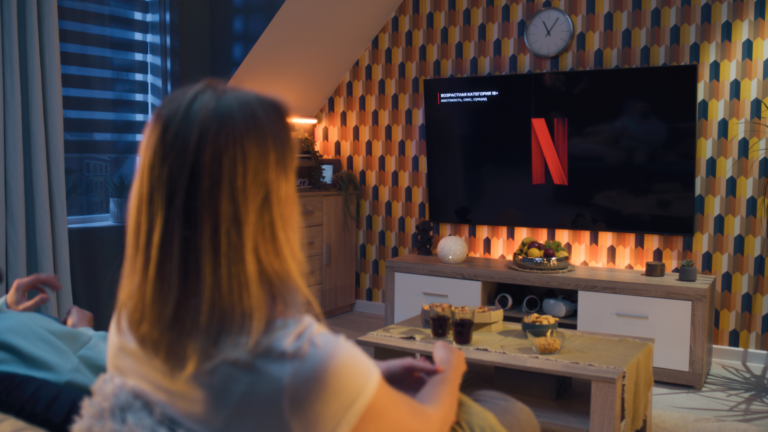As Anxiety Rates Soar, September’s National Self Improvement Month Sparks Concerns
According to the latest data from the U.S. Census Bureau, nearly 32.3% of adults suffer from symptoms of anxiety or depression. The rate is even higher among adults ages 18-24, at 49.9%.
These figures represent a drop of 6 percentage points from the height of the pandemic when 39.3% of all adults reported suffering from symptoms of depression or anxiety.
These numbers are still a significant cause for concern to the 90% of adults who believe America is currently in the midst of a national mental health crisis that isn’t likely to be cured anytime soon.
One national awareness month is here to offer hope, but it’s not without controversy.
September: National Self-Improvement Month
According to NationalToday.com, National Self-Improvement Month is dedicated to reminding us that we all need to improve and provides opportunities to reevaluate our lives and make adjustments.
While National Self-Improvement Month isn’t a federal holiday, the concept is part of a booming industry, particularly among millennials.
Personal development is a $43.77-plus billion industry, and experts expect it to grow during the coming years as individuals seek to improve their personal and professional skills, knowledge, and habits.
The personal development — or self-improvement — industry includes everything from business books, parenting classes, and mindfulness apps to online conferences for Christian women. It gives individuals a chance to better themselves with a wide variety of at-home and in-person materials and events.
The Promises of Personal Development
People love the personal development industry, with its charismatic gurus, motivating books and videos, and promises that anyone can be anything they want if they’re willing to overcome the negative mindsets holding them back and put in the hard work.
Personal development gave Jon Dulin, a Certified Financial Planner, a new mindset that allowed him to rise above his circumstances and create a better future for himself and his family.
“Around 15 years ago, I became depressed with a failed relationship and a job I didn’t like. I wasn’t sure what my path in life would be. I pulled away from friends and family, slept a lot, and wasn’t happy,” he said.
Looking for a change, he started reading self-help books and watching inspirational YouTube videos, and explained, “The information I took in helped me to have a more positive mindset, rather than always looking at the negative. I slowly started taking care of myself and spending more time with friends and family. This slowly snowballed into me seeking out a new job and, eventually, a new career. I still read books on personal development today.”
Personal Development — The Dark Side
Unfortunately, although self-improvement has helped countless people overcome anxiety and create the lives of their dreams, for others, it’s had the opposite effect.
JayDee Vykoukal, a physical therapist, said, “One of my first exposures to self-help was from Tim Ferris’s book ‘The 4-Hour Workweek.’ It was an eye-opening book that made me feel like I had been doing life all wrong up to that point. I knew I was onto something big in terms of changing my life path, but this new perspective had me feeling 110% overwhelmed. I had to stop the book mid-way because my anxiety became too much, and I didn’t return to it until almost a year later.”
Vykoukal isn’t alone in her experience.
Financial blogger John Dealbreuin said, “Every sleep tracker I used worsened my sleep due to anxiety. My brain would be so focused on the sleep score that I started waking up in the middle of the night and early morning to check my score. I decided to stop using sleep trackers, and my sleep improved. I now wake up when I feel fully rested, and I don’t let a number determine if my day will be productive.”
Self-Improvement Can Increase Anxiety
Medical professionals have reported seeing the dark side of personal development with their clients and patients as well.
Certified school psychologist and mental health practitioner Alex Anderson-Kahl, Ed.S, NCSP offers, “As a school psychologist and mental health practitioner, I’ve observed a growing trend in our society’s fascination with self-help and personal development. While these resources can be invaluable for many, there’s a flip side to consider. The constant pursuit of self-improvement can inadvertently set unrealistic standards, leading individuals to feel they are never ‘enough’ as they are. This perpetual chase can amplify feelings of inadequacy and contribute to heightened anxiety levels.”
Psychologist Dr. Lisa Strohman agrees. “In my clinical experience, individuals who excessively engage in self-help activities often report increased anxiety due to the pressure they feel to constantly improve and the fear of not measuring up. Some individuals paradoxically become more anxious as they seek to alleviate their anxiety through self-help, inadvertently adding another layer of stress to their lives.”
What’s Causing Our Collective Anxiety?
The recent COVID-19 pandemic is one obvious cause of our nation’s rising anxiety rates.
The percentage of American adults suffering from moderate-to-severe anxiety increased from 18.1% pre-pandemic to 25.3% within a few months after the pandemic began, according to the National Library of Medicine (NLM).
Even so, as most Americans put their masks away, many found themselves left with lingering anxiety that hasn’t subsided as the nation attempts moving toward a new normal.
In a recent American Psychiatric Association (APA) poll, Americans reported the following factors as current sources of their anxiety:
- Personal finances — 64%
- The uncertainty of 2023 — 55%
- Their physical health — 49%
- Their mental health — 41%
- Relationships with friends and family — 31%
- Job security — 27%
- Romantic relationships — 26%
- Keeping their New Year’s resolution — 24%
- Traveling — 21%
Unfortunately, many anxiety sufferers are left to deal with these fears and others on their own.
According to a recent joint study conducted by health policy research company KFF and media outlet CNN, while 30% of adults under age 30 reported receiving mental health services within the past year, another 47% reported being unable to access the mental health services or medication they thought they might need.
Affordable Alternatives to Counseling
With the average cost of therapy between $100 and $200 per session, simple self-care routines and low-cost self-help books and videos can provide affordable alternatives for those unable to pursue more expensive solutions.
Additional solutions include prayer, exercise, journaling, deep breathing exercises, spending more time in nature, talking with a friend, joining an online support group, and taking various over-the-counter vitamins and supplements.
Anyone struggling with significant anxiety, depression, or other mental health challenges is encouraged to call the Suicide and Crisis Lifeline at 988 for 24/7 access to free, confidential support provided by trained professionals.
This article was produced by Equipping Godly Women and syndicated by Wealth of Geeks.






